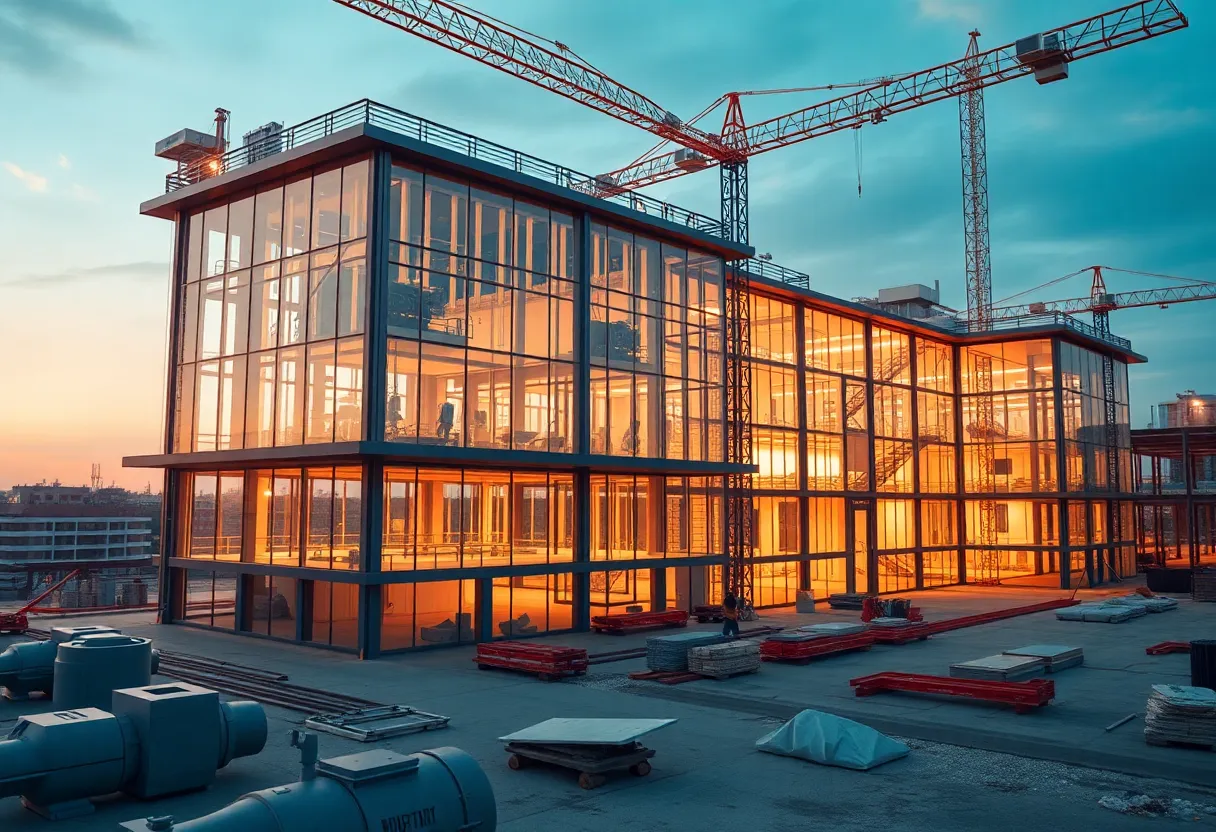News Summary
The Tampa Bay Area construction industry is transforming with the integration of artificial intelligence. Companies like Reynolds Painting Group and Coastal Construction are leveraging AI to streamline operations, enhance efficiency, and significantly reduce time and costs. This innovation allows for rapid project quotes and improved accuracy in material management, although it raises concerns about potential job displacement within the sector. The movement towards AI signifies a broader trend of advancing technology in construction aimed at meeting growing demands for quality and efficiency.
AI Revolutionizes Construction Industry in Tampa Bay Area
In recent months, the construction industry in the Tampa Bay area has undergone a significant transformation as artificial intelligence (AI) technology is being increasingly integrated into building processes. This shift not only enhances operational efficiency but also redefines how contractors and workers approach architectural plans.
Construction sites throughout the region are now leveraging AI to streamline workflows and improve accuracy in project execution. With the implementation of AI tools, the time required for various tasks has notably decreased, leading to faster delivery of construction projects. For instance, AI is changing the way contractors calculate paint quantities, which has traditionally been a labor-intensive process.
Efficiency Gains from AI Technologies
One notable example from the local industry is Reynolds Painting Group, which has adopted the Togal AI program. This innovative tool has drastically cut down the time required for estimating paint needs; what once took about ten minutes per room can now be assessed in mere seconds. This shift enables contractors to provide quotes in hours or days, in stark contrast to the previous timeline of weeks or even months.
This improvement is not isolated to Roberts Painting Group. AI’s impact is far-reaching, benefiting various aspects of materials and labor management, particularly on large-scale projects. For example, major developments like the Ritz-Carlton residences on Bayshore are already reaping the rewards of AI-enhanced accuracy and efficiency. Accurate measurements provided by AI technologies play a crucial role in ensuring timely material orders, an essential factor considering the often lengthy lead times for construction materials.
Cost Savings and Time Efficiency
Coastal Construction has also reported significant benefits from AI integration. The company claims that their AI system has saved approximately 10,000 hours of work and resulted in cost savings exceeding $1 million within a single year. Such savings reflect the growing trend of using AI for meticulous site measurements, which help avoid costly mistakes during critical phases, such as concrete pouring. By utilizing AI, companies can capture precise data, ultimately reducing wasted time and resources.
As proof of the transformative power of their AI applications, Coastal Construction received an innovator’s award from the “Associated General Contractors of America” for their development of the Togal AI program. This recognition underscores the importance of AI in shaping the future of the construction industry.
Job Displacement Concerns
Nevertheless, the advancements in AI within the construction sector align with national initiatives aimed at accelerating the development and deployment of AI technologies across multiple industries. The drive towards a more technologically advanced construction workforce stands as both a challenge and an opportunity for the industry as it navigates the evolving landscape of building and project management.
Looking Ahead
As AI continues to revolutionize the construction industry in Tampa Bay, it is evident that the impact is profound and multifaceted. The combination of enhanced efficiency, cost savings, and improved accuracy through AI technologies presents a promising outlook for the future of construction. While considerations around job roles remain an important dialogue, the inevitable integration of AI indicates a forward-thinking industry ready to embrace the changes that technology brings.
Deeper Dive: News & Info About This Topic
Additional Resources
- ABC Action News: Trump to Unveil AI Plans
- Wikipedia: Artificial Intelligence
- Fox 13 News: Contractors Using AI Programs
- Google Search: AI in Construction
- Cybernews: Starbucks 3D Printing Urban Architecture
- Google Scholar: AI Construction
- BDC Network: What’s New at 179 Architecture Firms
- Encyclopedia Britannica: Artificial Intelligence
- CoStar: AI’s Emergence Opens New Real Estate Frontiers
- Google News: Construction Industry AI
Author: Construction CA News
The CALIFORNIA STAFF WRITER represents the experienced team at constructioncanews.com, your go-to source for actionable local news and information in California and beyond. Specializing in "news you can use," we cover essential topics like product reviews for personal and business needs, local business directories, politics, real estate trends, neighborhood insights, and state news affecting the area—with deep expertise drawn from years of dedicated reporting and strong community input, including local press releases and business updates. We deliver top reporting on high-value events such as the Rose Parade, Coachella, Comic-Con, and the California State Fair. Our coverage extends to key organizations like the California Building Industry Association and Associated General Contractors of California, plus leading businesses in technology and entertainment that power the local economy such as Apple and Alphabet. As part of the broader network, including constructionnynews.com, constructiontxnews.com, and constructionflnews.com, we provide comprehensive, credible insights into the dynamic landscape across multiple states.


